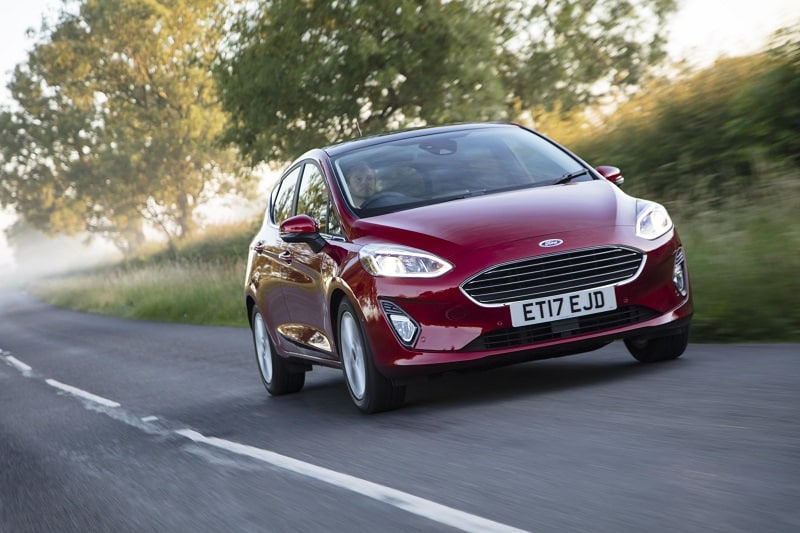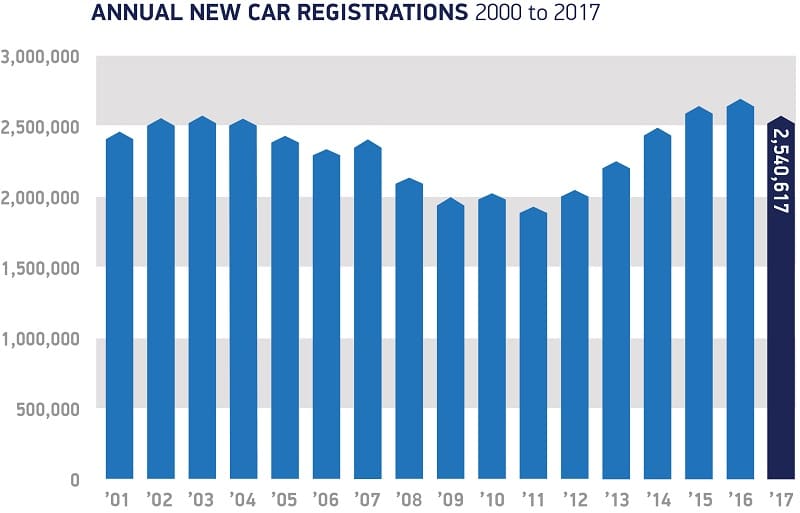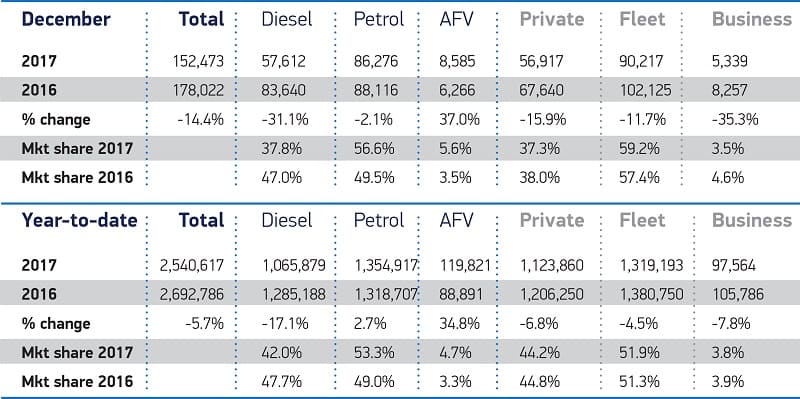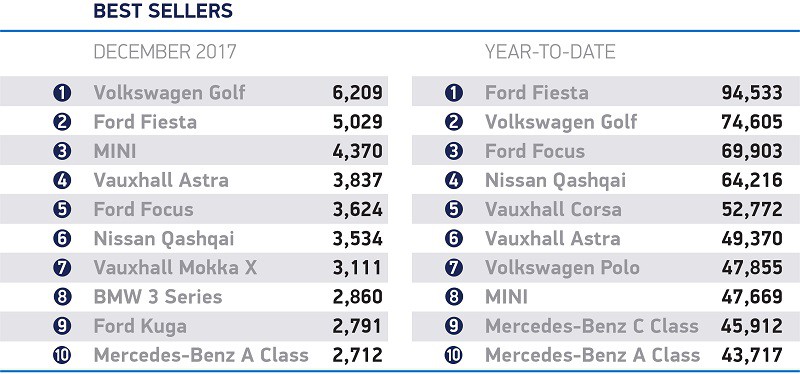SMMT 2017 registrations key points
- Market down 5.7% in 2017
- New car market still third best registrations year in a decade at over 2.5 million vehicles.
- Diesel demand down 17.1%
- December was ninth consecutive month of decline, registrations down 14.4%.
- Electrified cars reach record high, up 34.8% with almost 120,000 alternatively fuelled vehicles (AFVs)
- See car registrations by brand
NEW CAR registrations declined for the first time in six years in 2017, but with a final annual tally of 2,540,617 units in a new car market down 5.7% it was still the third best registrations year in a decade, according to figures published today by the SMMT.
A 14.4% decline in December marked the ninth consecutive month of negative growth and the diesel decline continued, ending the year with registrations down 17.1% with anti-diesel rhetoric and the potential for tax hikes causing buyers to hesitate.
Private, fleet and business registrations were all down in 2017, with demand from private motorists – accounting for nearly half the market – down 6.8%, while fleets saw a fall of 4.5%. The biggest percentage losses were seen in shrinking sector of business registrations, ending the year down 7.8%.
Ashley Barnett, head of consultancy at Lex Autolease, said: “It’s not surprising to see a continued fall in registrations, particularly in light of the publicity around emissions, introduction of Clean Air Zones and changes to government policy around the future taxation on company cars.
“Despite this, we experienced strong growth within the SME market last year.
“We expect to see a decline in overall registrations in 2018 as consumers look for clarity around future economic plans and environmental strategy.
“Despite the rise in average CO2 per new car last year, we predict adoption levels of ultra-low emission vehicles (ULEVs) will rise in the year ahead as consumers review fuel type in their vehicle choice.”
The most popular vehicle choices were, once again, superminis, small family cars and SUVs (dual purpose), with the latter the only segment to grow demand in 2017. In fact, one in every five new cars sold in the UK is now dual purpose, up from one in 10 five years ago.
Ford Fiesta, with a generation change mid-year, topped the charts by a margin of nearly 20,000 over second-placed VW Golf which also entered a new generation early in the year and topped the December registration charts.
Nissan Qashqai in fourth was the only SUV in the year’s top ten, but followed in December’s chart-toppers by Vauxhall Mokka X and Ford Kuga.
There was good news for the alternatively fuelled vehicle market, which grew 34.8%. A record number of hybrid, plug-in hybrid, battery electric and hydrogen fuel cell cars were registered – resulting in the sector’s highest-ever annual market share of 4.7%.
UK consumers buy more plug-in cars than anywhere else in Europe and demand grew by a quarter in 2017 – making Britain a key market.
Demand for petrol cars also rose in the year, but by a more modest 2.7%.
However, SMMT points out diesel cars remain the right choice for many motorists – especially those who travel longer distances – with lower CO2, better fuel economy and, with these newer vehicles, dramatically reduced air quality emissions.
Latest calculations by SMMT highlight the money saving benefits of diesel cars, with drivers of diesel-powered large family vehicles, SUVs and executive cars saving an average of between £300 and £400 a year on their fuel bills. Across all body types, the average is £132 a year – equivalent to an average household’s quarterly electricity budget.
SMMT chief executive Mike Hawes said: “The decline in the new car market is concerning but it’s important to remember demand remains at historically high levels. More than 2.5 million people drove away in a new car last year, benefitting from the latest, safest, cleanest and most fuel efficient technology.
“Falling business and consumer confidence is undoubtedly taking a toll, however, and confusing anti-diesel messages have caused many to hesitate before buying a new low emission diesel car.
“Keeping older vehicles on the road will not only mean higher running costs but will hold back progress towards our environmental goals. Consumers should be encouraged to buy the right car for their lifestyle and driving needs irrespective of fuel type – whether that be petrol, electric, hybrid or diesel as it could save them money.
“2017 has undoubtedly been a very volatile year and the lacklustre economic growth means that we expect a further weakening in the market for 2018. The upside for consumers, however, is some very, very competitive deals.












